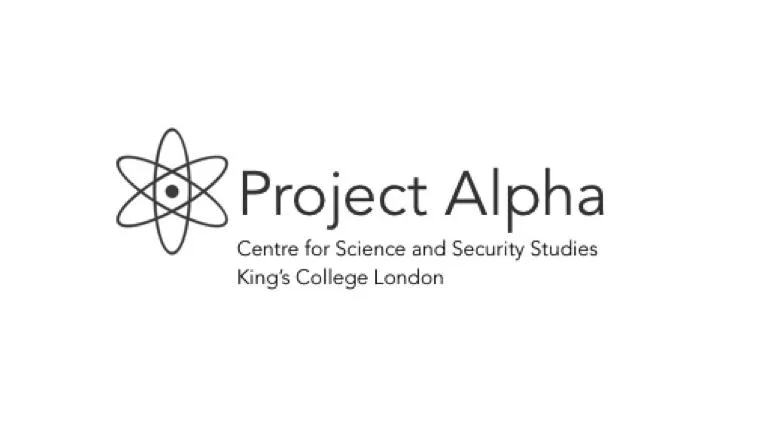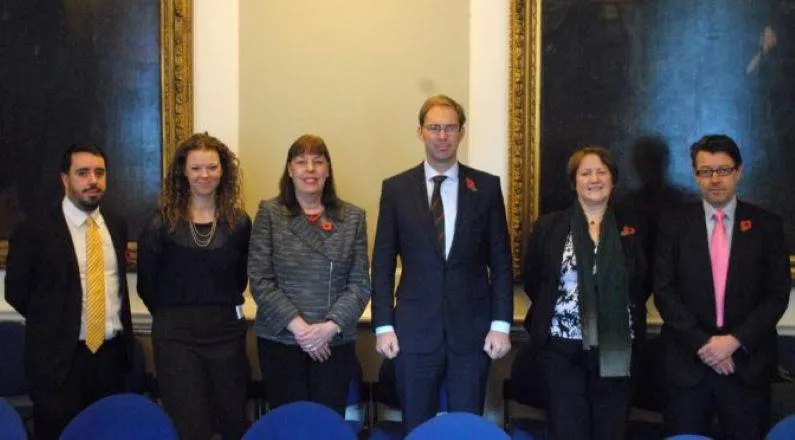03 February 2015
Supporting UN Security Council Resolution 1540: a cornerstone of efforts against WMD proliferation
This year marks the tenth anniversary of the UN Security Council’s adoption of Resolution 1540, which requires all states to take measures to prevent non-state actor involvement in proliferation of Weapons of Mass Destruction (WMD). The obligations of Resolution 1540 fall upon on states, but implementing the resolution and preventing WMD proliferation relies on the assistance of international organisations, civil society, academia and industry.

On 5th and 6th November 2014, Project Alpha at King’s College London and Chatham House jointly hosted a gathering of representatives from all of these groups with the aim of supporting the objectives of Resolution 1540 and strengthening international efforts to prevent WMD proliferation. Members of the UN’s 1540 Group of Experts – in London for their first formal visit to the UK – were joined at the events by participants from the UN Office of Disarmament Affairs, the UN’s 1540 Committee, and representatives of several national and multilateral organisations. The events were opened by Tobias Ellwood, the Conservative MP for Bournemouth East and Parliamentary Undersecretary of State at the Foreign and Commonwealth Office, and Professor Virginia Gamba, Deputy High Representative for Disarmament Affairs and Director at the UN Office for Disarmament Affairs.
Ian J. Stewart, head of Project Alpha – a King’s College London initiative designed to understand and combat illicit, proliferation-related trade – described the events as a success. ‘Resolution 1540 provides the international community with a very valuable mechanism to thwart proliferation to and by non state actors,’ he said. ‘1540 is also the foundation of a valuable dialogue between states, the UN, and civil society on how best to address proliferation challenges – and with the UN’s 2016 comprehensive review of Resolution 1540 quickly approaching, this conference has been a great opportunity to further this dialogue.’
Other conference participants, too, remarked on the importance of Resolution 1540: in his opening remarks, Tobias Ellwood MP quoted Dina Perkins, a former Resolution 1540 expert, who described the resolution as “the most comprehensive weapon in our armoury” against proliferation.
Government departments represented at the two-day event included the UK’s Export Control Organisation, Department of Energy and Climate Change, and Foreign and Commonwealth Office, the US Department of State, Germany’s Federal Office for Economic Affairs and Export Control, and Malaysia’s Ministry of International Trade and Industry. Civil society organisations present included the James Martin Centre for Non proliferation Studies (CNS), the European Commission’s Joint Research Centre, the Institute for Security Studies (Africa), the Egyptian Council of Foreign Affairs, the Institute for Defence Studies and Analyses (India), the Verification Research, Training and Information Centre (VERTIC), Carnegie Endowment for International Peace, and Stockholm International Peace Research Institute (SIPRI).
Project Alpha is now building a programme of follow-up activities to continue the momentum of the two-day conference. These activities may include the establishment of a network of Resolution 1540 practitioners across civil society, and a series of regional events to explore civil society’s support for Resolution 1540 ahead of the UN’s 2016 comprehensive review.
The conference organisers would like to thank the UN Office for Disarmament Affairs for their partnership in the organisation of the events, and also the Foreign and Commonwealth Office for providing support.

